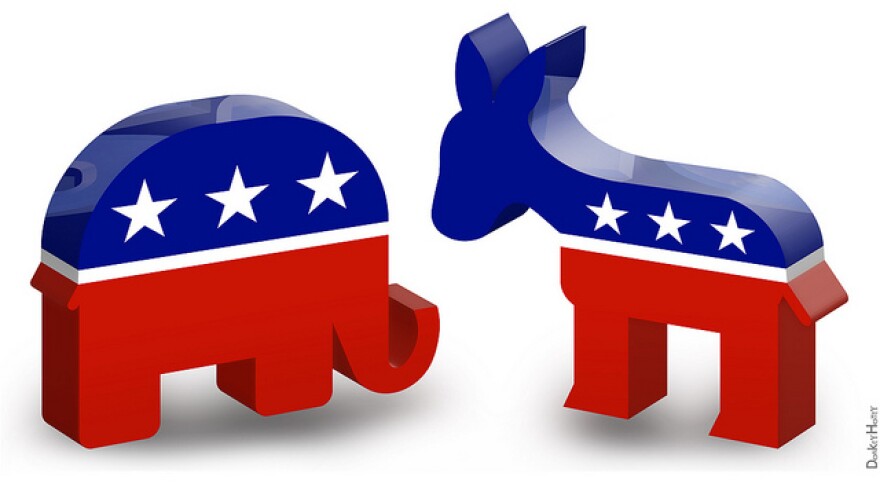Colorado has largely been spared from the political wrangling ahead of the 2016 presidential race. But as Republicans nationally are working to narrow the presidential field, the Republican Party in Colorado wants to widen its field of candidates to run against incumbent Democratic Senator Michael Bennet.
"The numbers tell us Senator Bennet is vulnerable," said Republican state party Chairman Steve House. "It would be great to hold onto the U.S. Senate. Republicans have to defend a number of seats more than the Democrats."
The exact number of national seats up for defense is 24 for Republicans, while Democrats only have to defend 10 U.S Senate seats. In Colorado, several Republicans – including El Paso County Commissioner Darryl Glenn, and former Small Business Administration head Greg Lopez have already declared their candidacies. There is also murmuring that Arapahoe County District Attorney George Brauchler, who prosecuted Aurora theater shooter , might enter the race for Bennet's seat.
"I have a high level of respect for Mr. Brauchler and nothing against anyone who has already filed in this campaign," said state Senator Chris Holbert (R-Parker), who would support Brauchler entering the race.
Holbert lives in Brauchler's judicial district and said he would be a strong contender for any political office he might seek.
"I have looked to George as a very viable candidate. You know his name has been mentioned for Governor? If he were to run for second term as DA, I could see him running for Attorney General," Holbert said.
Brauchler recently told The Colorado Statesman, a political newspaper, that he's still weighing a possible run and its impact on his wife and four young children. State party chair Steve House thinks the field will need to be decided by early October.
"I don't think anybody entering after that has a great chance," House said.
The presidential race is another story. The state GOP recently voted to at the 2016 caucus. That's because new national rules mean the state's delegates to the Republican National Convention would be bound to vote for the winner of that straw poll.
"A preference poll could bind delegates to a candidate that the bulk of Coloradans don't care for," said House. "And that's always been one of the considerations especially when you have large groups of activists who go to caucuses as opposed to what people would refer to as more establishment mainstream Republicans."
The decision to eliminate the presidential preference poll has been controversial, with some worrying it limits grass roots participation. Colorado State University political science professor John Straayer said it also may lead to less attention on Colorado in the early stages of the race, but he thinks the public is paying attention, regardless.
"It's theater, it's amusement, it's different, it's unusual," said Straayer. "The circus has come to town."
Both parties agree that nothing has changed from the last presidential election when it comes to and it will remain one of the key swing states on the road to the White house. Republican Senator Cory Gardner – who Democrat Mark Udall in one of the hardest fought races in 2014 – said no candidate can win here without really speaking on issues that matter to voters.
"It's the environment, it's our education, it's our economy, it's jobs, what we're doing to put positive reforms to our state to grow opportunities for all Coloradans," said Gardner. "That's the person who is going to win our state, regardless of party."
After September's Republican Presidential debate in California the candidates will have a chance to perhaps highlight those issues important to Colorado. The GOP debate stage will be coming to the in Boulder, Oct. 28, 2015.






